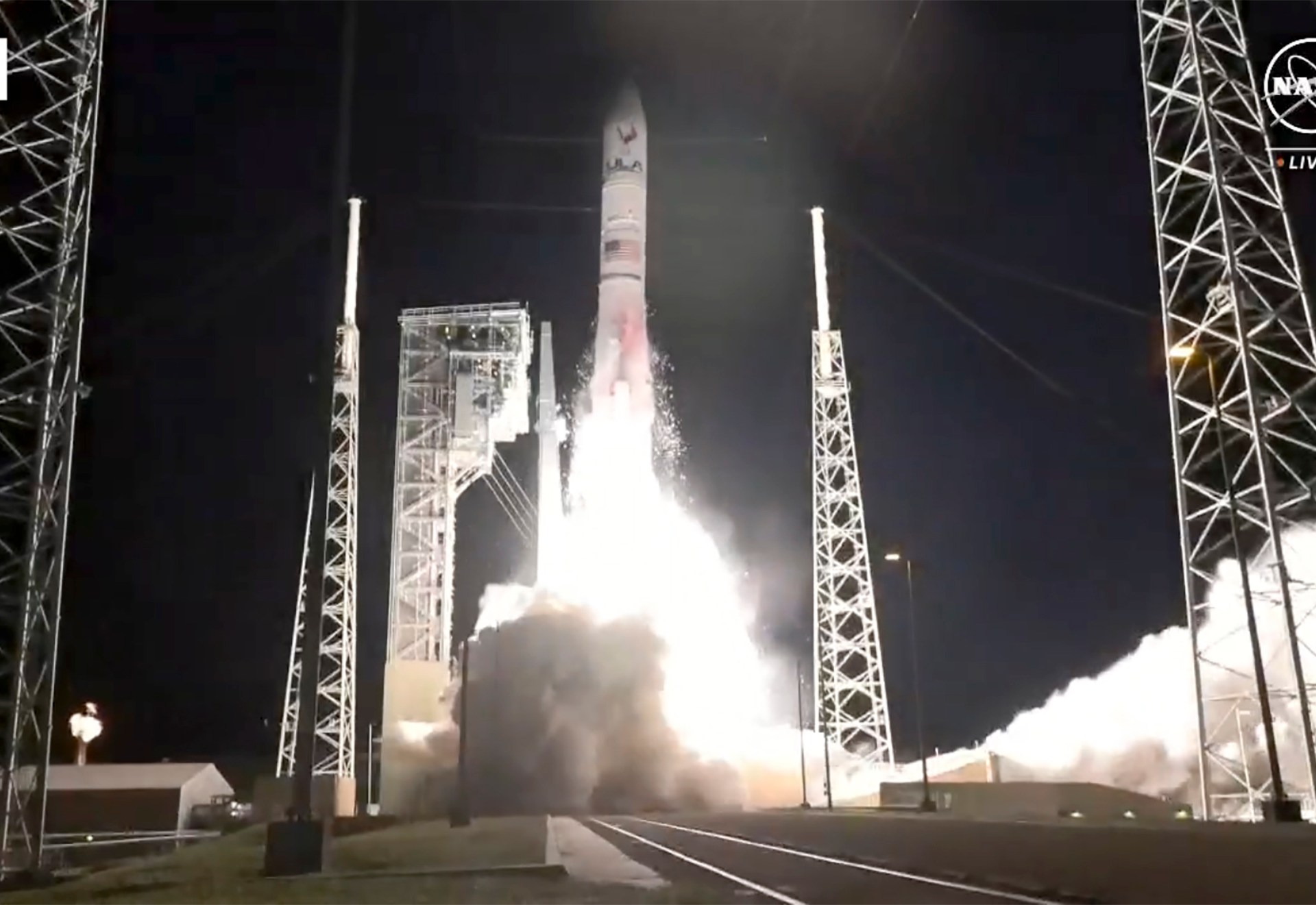A ‘critical loss of fuel’ dims hope for what had been a planned moon landing on February 23.
Astrobotic’s Peregrine lunar lander has “no chance” of a soft landing on the moon after springing a propellant leak in the first few hours of its journey in space, the company has said.
There was 40 hours of fuel left on the lander that would allow it to operate “as a spacecraft” even as engineers determine what its new mission in orbit will be, the space robotics firm said on Tuesday.
The craft was launched on board the first flight of Vulcan, a rocket that had been under development for a decade by United Launch Alliance (ULA), a joint venture of Boeing and Lockheed Martin.
The lander was launched successfully on Monday from Cape Canaveral, Florida, but it suffered a propulsion system issue en route to the moon.
After the launch, the lander failed to enter its correct sun-facing orientation in space and saw its battery levels plummet, but Astrobotic said it was able to fix the issue.
“The team continues to work to find ways to extend Peregrine’s operational life,” it said, adding that engineers are receiving data and proving spaceflight operations for components and software related to its next lunar lander mission.
NASA had paid the company more than $100m to ship scientific hardware to a mid-latitude region of the moon to answer questions about the surface composition and radiation in the surrounding environment, as it prepares to send astronauts back to Earth’s nearest neighbour later this decade.
The United States is turning to the commercial sector to stimulate a broader lunar economy and cut costs, but Astrobotic’s failure could increase scrutiny about the strategy.
Controlled touchdown on the moon is challenging, with roughly half of all attempts failing. In the absence of an atmosphere that would allow the use of parachutes, a spacecraft must navigate treacherous terrain using only its thrusters to slow descent.
Private missions by Israel and Japan, as well as a recent attempt by the Russian space agency, have ended in failure – though Japan’s space agency is targeting mid-January for the touchdown of its SLIM lander launched last September.
In addition to the science instruments it carried for NASA, Peregrine contains more colourful cargo paid for by private customers, such as a physical Bitcoin as well as cremated remains and DNA, including those of Star Trek creator Gene Roddenberry, legendary sci-fi author Arthur C Clarke, and a dog.
The Navajo Nation, the US’s largest Indigenous tribe, had objected to sending human remains to the moon, calling it a desecration of a sacred space.
Though they were granted a last-ditch meeting with White House and NASA officials, their misgivings were ultimately ignored.
Sumber: www.aljazeera.com
 Skip to content
Skip to content

